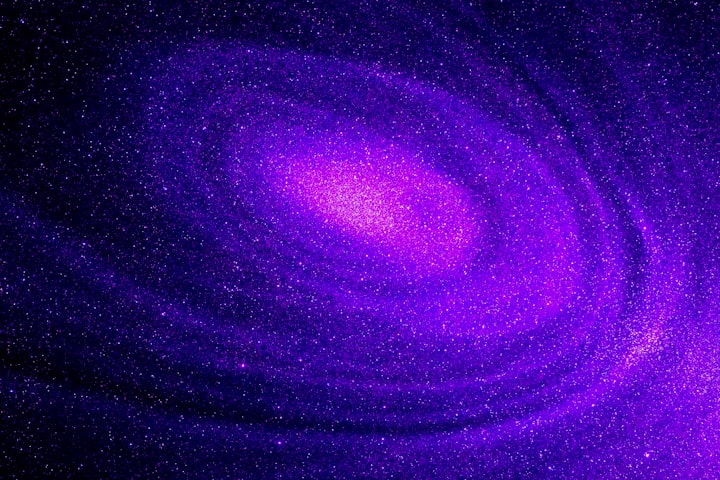Is There Anything Beyond the Edge of Infinity?
Exploring The Limits Of Space

The universe has always been a source of profound fascination and curiosity for humanity. Space, with its countless galaxies, stars, and mysteries, has captivated the human imagination for centuries. As we continue our explorations beyond Earth, we're confronted with a question that stirs both scientific wonder and existential contemplation: Is there anything beyond the edge of infinity?
Space exploration has taken us to the far reaches of our solar system and allowed us to peer deep into the cosmos, providing breathtaking images of distant galaxies and celestial wonders. Yet, despite our incredible advancements in technology and understanding, the notion of an "edge of the universe" remains elusive and enigmatic.
The concept of infinity in the context of the universe presents a peculiar challenge. When we refer to the universe as "infinite," we mean that it has no fixed boundary or edge. However, trying to grasp the idea of infinity can be mind-boggling. It raises the question of whether there is a limit to the universe or if it stretches on infinitely, without end.
For centuries, philosophers and astronomers have contemplated the nature of the cosmos. The ancient Greeks, including thinkers like Aristotle and Ptolemy, believed in a finite, Earth-centered universe. It wasn't until the Renaissance that astronomers like Nicolaus Copernicus and Johannes Kepler began to challenge these ideas, proposing a heliocentric model of the solar system and, eventually, a universe without a fixed boundary.
In the early 20th century, Edwin Hubble's groundbreaking observations led to the discovery that our universe is indeed expanding. This realization revolutionized our understanding of space and time, and it has given rise to the Big Bang theory, which posits that the universe had a definite beginning some 13.8 billion years ago. However, even within an expanding universe, there is no indication that it has a finite edge.
So, as far as current scientific knowledge goes, the concept of an "edge" or a "beyond" to the universe remains highly speculative. In our quest for answers, we've sent spacecraft to the farthest reaches of our solar system and peered into the cosmos with powerful telescopes, but we have not yet found any evidence of a cosmic boundary.
This doesn't mean that scientists have given up the search. Exploration of the universe continues, and new technologies and missions are being developed to probe even deeper into the cosmos. The James Webb Space Telescope, set to launch in the near future, promises to offer unprecedented insights into the universe's earliest moments and the formation of galaxies. The Large Synoptic Survey Telescope (LSST), currently under construction in Chile, will map the entire sky and help us better understand the large-scale structure of the universe.
While we may not have definitive answers about the nature of the universe's "edge," the exploration of space has led to a plethora of fascinating discoveries. We've uncovered exoplanets orbiting distant stars, investigated the potential for life beyond Earth, and made significant strides in our understanding of dark matter and dark energy. These mysteries only serve to deepen our curiosity about the cosmos and the possibility of something existing "beyond the edge of infinity."
In the realm of theoretical physics, there are various hypotheses about the shape and structure of the universe. Some theories propose a "multiverse," where our universe is just one of many universes that exist in a larger cosmic ensemble. Others suggest that the universe might be shaped like a vast three-dimensional torus, meaning it's both infinite and finite in a way that challenges traditional notions of boundaries.
Beyond the scientific inquiries, pondering what might exist "beyond the edge of infinity" has philosophical and existential implications. It forces us to confront the limits of human understanding and the boundaries of knowledge. It's a reminder of the infinite mysteries that remain in the universe, waiting to be explored.
In conclusion, as we continue our journey into the cosmos, the concept of an edge or boundary to the universe remains a tantalizing mystery. Space exploration has provided us with an ever-expanding treasure trove of knowledge and beauty, but the question of what, if anything, exists "beyond the edge of infinity" remains unanswered. It is a reminder of the boundless nature of the universe and the limitless potential for discovery that lies ahead as we continue to explore the cosmos, pushing the boundaries of our knowledge and understanding.
About the Creator
Safwa Elouizi
Adventurer of words and explorer of ideas. I journey through the realms of creativity and limitless imagination, bringing you tales from the unconventional, knowledge from the extraordinary, and insights into the fascinating.






Comments
There are no comments for this story
Be the first to respond and start the conversation.